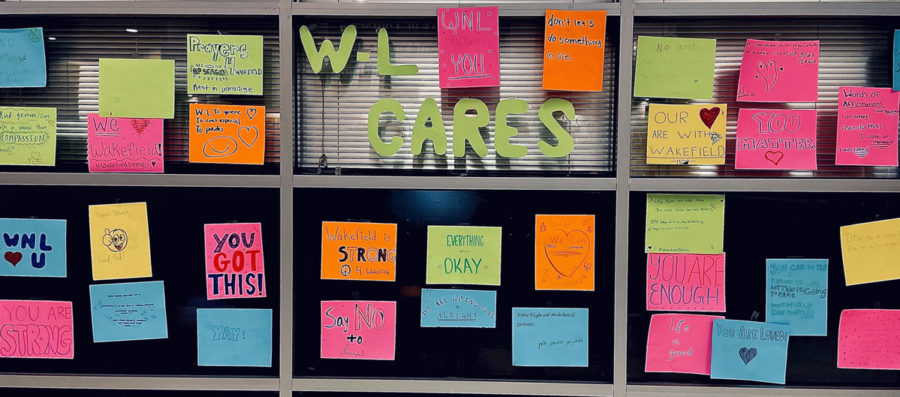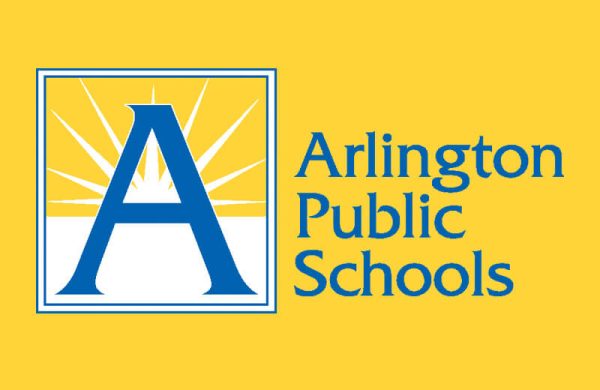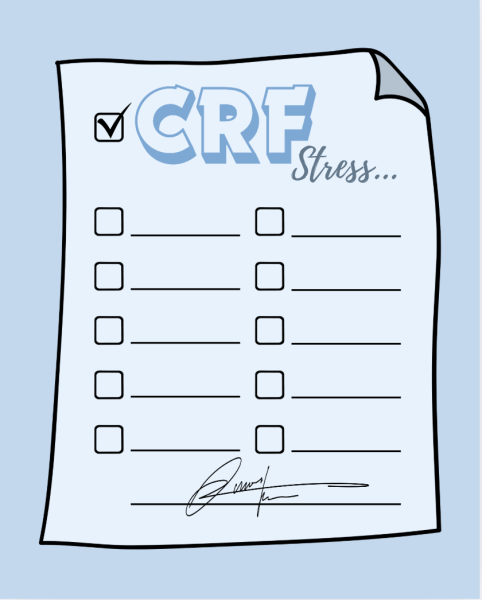The predominance of substance abuse in Arlington schools
Subtitle: Illicit Drug Use is Up Among High School Students
Prescription medication is currently the fastest-growing drug problem in the United States. One misconception is that opioids are less dangerous to the body than other drugs. This is not the case. The effects of opioids can be especially damaging to an adolescent brain and body. Until we reach our early to mid-twenties, our brains continue to develop.
Throughout Arlington, many wonder , “Is this the beginning of the end?” This year, there have been excessive hardships in the school community. How are these issues being addressed? How will the community move forward?
On Feb. 2,Wakefield lost a beloved freshman from a drug overdose. There were four other students hospitalized from the same event. Substance abuse has been an issue throughout Arlington high and middle schools for years, but now it seems more present than ever. There have been overdoses in county high schools before, but the frequent news of substance abuse is eye-opening for the entire community.
Ms. Maria Ceballos is the Substance Abuse Counselor at the school. Her room is open in the clinic every day of the week except Thursdays.
“Many, many times adolescents use drugs out of curiosity, they want to know how it feels,” Ceballos said. “If addiction runs in the family, you are at higher risk of developing an addiction. If you live in an environment where drugs are normalized, [the risk increases]. The younger you are, the higher the possibility that you could develop an addiction. [As] I always say, wait until you’re 21, wait until your brain is finished developing. If you are really that curious you have the rest of your life to experiment. Adolescence is the time that you can explore haircuts or hair color; explore sports or other activities [instead].”
However, students are not always trying substances out of curiosity. There is another level behind it: mental health.
“Students are experiencing stress,” Ceballos said. “We know that adolescence is a period of time where students have changing hormones; they’re stressed out about different things. [When] people are stressed or have some trauma in their life, they will look for self-medication, for something that makes them feel better.”
High schoolers have many stressors that may provoke the use of substances. The number of students using substances is high. This threat is real to all high schoolers, as drugs can be easily accessible. There is a link between needing mental wellness support and resorting to other ways to self-medicate.
“[An overdose] could have happened in any school in Arlington or any school in the area,” Ceballos said. “We are definitely dealing with a fentanyl epidemic. What is making it really scary is that it is very inexpensive, and is accessible to adolescents. It’s in the community. The Washington-Liberty High School community is working very closely with teachers and parents. Everybody’s working together to provide a safe environment for students. We cannot do it alone.”
The Center for Disease Control (CDC) surveyed high school students from all around America.
“Fifteen percent of high school students reported having ever used select illicit or injection drugs (i.e. cocaine, inhalants, heroin, methamphetamines, hallucinogens, or ecstasy). 14% of students reported misusing prescription opioids,” the CDC said in a 2022 release.
Addiction messes with your brain; once one is addicted, it is hard to stop. The addiction levels are also high. No student plans to get addicted, but it happens.
“‘I’m going to get addicted to drugs, that’s not the intention of students, right? What happens is if that person feels a relief, even if it’s a little bit, they will continue to do it,” Ceballos said. “It can lead to addiction, very quickly. With Fentanyl [in particular] you get addicted quickly.”
Students can go with concern for a friend, a peer, or themselves. Students can do this anonymously. The counselors are always at school for support.
“What I will suggest to any student is to reach out to an adult,” Ceballos said. “As the substance abuse counselor, you have access to me directly. I will be one of the most important people you can talk to. There are other adults that can be involved as well. If the student has a close adult, they can provide support [too].”
Following the overdose at Wakefield, Tony Hall, Principal at Washington-Liberty (W-L), has implemented new safety measures to prevent opportunities for students to make bad decisions. additional security personnel walk the halls and keep students in check. There are random hallway sweeps and kids cannot leave the classroom for the first and last ten minutes of class to limit loitering during the passing period and for students to get to classes on time. Now students need passes at all times, and they will be escorted to go to the counselors or nurse by a staff member.
“For increased safety: hall sweeps, increased monitoring of bathrooms, and the use of cameras and other technology for safety,” Principal Hall said. “[The new safety measures] are not to lessen the school spirit or the enthusiasm of anybody. They lessen the time that we have to worry about kids across both school buildings and why they’re in the halls. We are trying to make [the school] as welcoming a place it can be for everybody. [The safety measures] are designed to not only keep us safe but to make sure that people understand the responsibility that they have as far as being in class and staying out of trouble. However, it also allows [staff] to do so many other good things, as we’re not just chasing students around the hallway.”
Students are still determining the effectiveness of these new implications like freshman Anhkil Davaatseren.
“What are they really going to accomplish?” Davaatseren said. “Twenty minutes of each class where students cannot leave, 20 minutes to keep kids from doing drugs in the bathroom. Will this truly stop the use of drugs in W-L? This does not address the selling of drugs or usage. The school needs to be doing more.”
Freshman Bellum De Filippelli has similar thoughts.
“I understand the intent behind [the sweeps], but from my understanding, they don’t seem that effective,” De Filippelli said. “The sweeps are pretty infrequent,so it seems like a waste of time.”
Teachers and staff at every middle and high school in Arlington have received mandatory opioid awareness training. Every staff member has been trained for Narcan. Narcan is a medication that can assist people who have overdosed on opioids. Prescription medications, heroin, and fentanyl are all examples of opioids. All teachers have received their supply of Narcan with the training. There is Narcan in the clinic, and the administrators have it too. Mr. Josh Folb, an algebra two teacher, received this training.
“[Opioids] are so easy to get, they’re so easy to take, and they work fast. There’s no such thing as a safe pill,” said Folb. “Unless you’ve got it from a pharmacy, there is no such thing as a safe pill.”
Fentanyl is a very dangerous drug. Dealers never know what is in the pills they are selling. Fentanyl pills are very cheap and easy to find for teens. The country is in a real opioid epidemic.
Solving this problem partly depends on what the schools do to prevent it and the accessibility of drugs. The school can only do so much to rectify drug usage. Students have to do their part as well. Teachers and counselors are stressing the need for student cooperation with this issue.
“If you see something, you need to say something,” said Folb. “I think we need everybody involved.”
Opioids are a very dangerous drug to be taking. Arlington Public Schools (APS) sends information to parents, students and staff to get everyone informed and on board. There are new rules mandated at the school to keep everyone safe.
“Combating this issue requires a community-wide response including at home, in school, and in public,” Principal Hall said. “As a community, we must stay vigilant and well-informed and work together. Fentanyl is a powerful synthetic opioid which is often added to other drugs that look like something else, and even the smallest dose – a single pill – can be fatal.”
Students are not alone, there are always people at school to talk to.
“There are many resources on the APS website,” said Ceballos. “There’s substance abuse services, there are counselors in every school including counselors specifically for substance abuse. We are trying to develop a safe environment for students here. We also have the sigma line (dial 988) that is available 24/7 for students. So if a student is not feeling well, has stress, is bullied in school, whatever it is, they can contact this phone number and a mental health specialist will talk to them.”
If students have friends or loved ones getting mixed up with different substances, the counselors are there for support.
“If you are 14 or older, I need your written permission to be able to talk to your parents or someone else,” Ceballos said. “There are exceptions to that: if the student is trying to hurt themself or hurt someone else, I cannot keep it between the student and me. I will need to contact parents and additional staff members here. If this student is experiencing any physical abuse, sexual abuse or neglect, I am a mandated reporter. If the student is using fentanyl, or is using any combination of drugs that can harm that student, I will need to contact the parents too.”
All Arlington High Schools are trying to provide a safe and loving community.
“It’s important to get others on board and provide other ways to cope,” said Principal Hall. “We have to be mindful of the mental health challenges that are associated with substance abuse. If a young person is going through something and they are engaging and using substances, what is that a substitute for? So when we remove that, we have to fill that with something else. How do we use the resources within this building? And how do we partner with the resources? That is what the staff is trying to provide for the students.”
Substance abuse is in high schools, and it is affecting students’ high school experience and their peers. Is this sufficient for students? Are students really the problem and solution?
“Substance abuse as a whole is really prominent and it’s happening a lot at Wakefield,” Brianna Gilbert, a freshman at Wakefield said. “It’s a big problem, it’s a threat. It’s affecting at most a couple hundred kids at our school, not always opioids, but drugs and marajuna. Not necessarily my personal group of friends, but drugs are definitely around in the school.”
Mental health is thought to be a reason for teen addiction, but do kids realize this?
“I definitely think there is a connection between substance abuse and mental health among teens,” said Gilbert. “A lot of the kids who do different drugs at our school are really depressed or have a bad home situation. They don’t have the best life, so they turn to drugs or things to make them feel better. A lot of the kids have a lot of anxiety or depression and don’t have access to rehab or different medications so they turn to drugs. It’s really sad.”
Wakefield is mourning a loss of a student, which is hard for many. The whole community feels it. If the consequences of substance abuse are shown to students, will that be enough to deter them from using drugs?
“No, I really don’t think [drug use will be discouraged]. I think it’s really sad, but a lot of the time it takes a personal experience,” said Gilbert. “The day after [he died], they had to call an ambulance for alcohol abuse. It was crazy. I think it’s going to take a lot more collectively from everyone, not just students, to crack down on it more. Obviously they don’t support it but they don’t do enough to stop it or prevent it. I don’t think it’s going to stop any of it.”
Students are a big part of the problem, but are they the sole solution?
“I really think kids are gonna be kids, and it’s not going to be solved,” Gilbert said. “It’s up to the adults to monitor kids, it’s up to the adults to cut it off from the source with the selling of drugs. If you can cut it off then there is nothing coming in. I think adults can do a lot more to stop the spread of it and the selling of it at our school.”
Even though Wakefield has opened the community’s eyes on the gravity of this issue, substance abuse is a part of all Arlington high schools.
“I dont think it’s a specific high school problem, it’s more of a country-wide thing. It’s not even kids just in Yorktown or Northern Virginia, it’s everywhere,” Yorktown freshman Liem Nguyen said. “The recent events at Wakefield aren’t going to stop kids from taking drugs. They might hesitate now, but drugs are drugs. They are addictive and people will still do it.”
Every teacher, administrator, and staff member care for the Arlington community and want all students to be safe and happy. There is more information on substance abuse, opioids specifically, on the APS website.
“This is a subject that is personal for me. My family had challenges and I understand what that’s like for a young person to go through that,” Principal Hall said. “I want everyone to be able to talk to a trusted adult here, it doesn’t have to be me, it doesn’t have to be an assistant principal, it could be a teacher. It could be somebody in counseling, it could be your coach, I just want you to make sure that you have somebody you can go to. If you’re at a point where you’re in a crisis and you may resort to using [substances] we are here. If you see something, please report it, because it’s important for us to be able to walk around the campus and feel safe. We want people to be supportive and understand that there are resources for support.”
Drugs in high school are affecting everyone’s high school experience. It has affected the whole community because at the end of the day a classmate died and that is hard on everyone, teachers and staff included.
Sources
What did you think about this story? Do you have any suggestions for improvements or other articles that you would like to see? Please use the contact form to communicate with us! (Keep all information school-appropriate)
https://docs.google.com/forms/d/e/1FAIpQLSeRYRWwLLzvs2rqwHSGdr-DQRvxhUSx9UcaXypXxnvVuCqwyA/viewform













